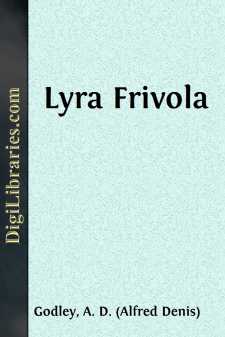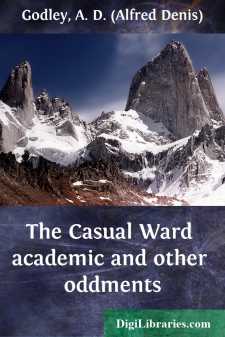Categories
- Antiques & Collectibles 13
- Architecture 36
- Art 48
- Bibles 22
- Biography & Autobiography 816
- Body, Mind & Spirit 145
- Business & Economics 28
- Children's Books 18
- Children's Fiction 14
- Computers 4
- Cooking 94
- Crafts & Hobbies 4
- Drama 346
- Education 58
- Family & Relationships 59
- Fiction 11831
- Foreign Language Study 3
- Games 19
- Gardening 17
- Health & Fitness 34
- History 1378
- House & Home 1
- Humor 147
- Juvenile Fiction 1873
- Juvenile Nonfiction 202
- Language Arts & Disciplines 89
- Law 16
- Literary Collections 686
- Literary Criticism 179
- Mathematics 13
- Medical 41
- Music 40
- Nature 179
- Non-Classifiable 1768
- Performing Arts 7
- Periodicals 1453
- Philosophy 66
- Photography 2
- Poetry 897
- Political Science 203
- Psychology 45
- Reference 154
- Religion 516
- Science 126
- Self-Help 86
- Social Science 82
- Sports & Recreation 34
- Study Aids 3
- Technology & Engineering 59
- Transportation 23
- Travel 463
- True Crime 29
Our website is made possible by displaying online advertisements to our visitors.
Please consider supporting us by disabling your ad blocker.
Lyra Frivola
Description:
Excerpt
AFTER HORACE
What asks the Bard? He prays for nought
But what the truly virtuous crave:
That is, the things he plainly ought
To have.
'Tis not for wealth, with all the shocks
That vex distracted millionaires,
Plagued by their fluctuating stocks
And shares:
While plutocrats their millions new
Expend upon each costly whim,
A great deal less than theirs will do
For him;
The simple incomes of the poor
His meek poetic soul content:
Say, L30,000 at four
Per cent.!
His taste in residence is plain:
No palaces his heart rejoice:
A cottage in a lane (Park Lane
For choice)—
Here be his days in quiet spent:
Here let him meditate the Muse:
Baronial Halls were only meant
For Jews,
And lands that stretch with endless span
From east to west, from south to north,
Are often much more trouble than
They're worth!
Let epicures who eat too much
Become uncomfortably stout:
Let gourmets feel th' approaching touch
Of gout,—
The Bard subsists on simpler food:
A dinner, not severely plain,
A pint or so of really good
Champagne—
Grant him but these, no care he'll take
Though Laureates bask in Fortune's smile,
Though Kiplings and Corellis make
Their pile:
Contented with a scantier dole
His humble Muse serenely jogs,
Remote from scenes where authors roll
Their logs:
Far from the madding crowd she lurks,
And really cares no single jot
Whether the public read her works
Or not!
When Parson, Doctor, Don,—
In short, when all the nation
Goes gaily off upon
Its annual vacation,
Their cares professional
No more avail to bind them:
They go at Pleasure's call
And leave their trades behind them.
Like them, departs afar
From England's fogs and vapours
The literary star,
The writer for the papers:
But not, like them, at home
Leaves he his calling's fetters:
Nought can release him from
The tyranny of Letters!
When classic scenes amid
For rest and peace he hankers,
Amari aliquid
His joys aesthetic cankers:
Whate'er he sees, he knows
He has to write upon it
A paragraph of prose
Or possibly a sonnet:
By mountain lakelets blue,
'Mid wild romantic heath, he's
A martyr always to
Scribendi cacoethes:
The Naiad-haunted stream
Or lonely mountain-top he
Considers as a theme
Available for "copy."
If on the sunlit main
With ardour rapt he gazes,
He's torturing his brain
For neat pictorial phrases:
When in a ship or boat
He navigates the briny
(And here 'tis his to quote
Examples set by Heine)
While fellow-passengers
Lie stretched in mere prostration,
He duly registers
Each horrible sensation—
He notes his qualms with care,
And bids the public know 'em
In "Thoughts on Mal de Mer,"
Or "Nausea: a Poem."
* * * *
Such is his earthly lot:
Nor is it wholly certain
If Death for him or not
Rings down the final curtain,
Or if, when hence he's fled
To worlds or worse or better,
He'll send per Mr St—d
A crisp descriptive letter...!



